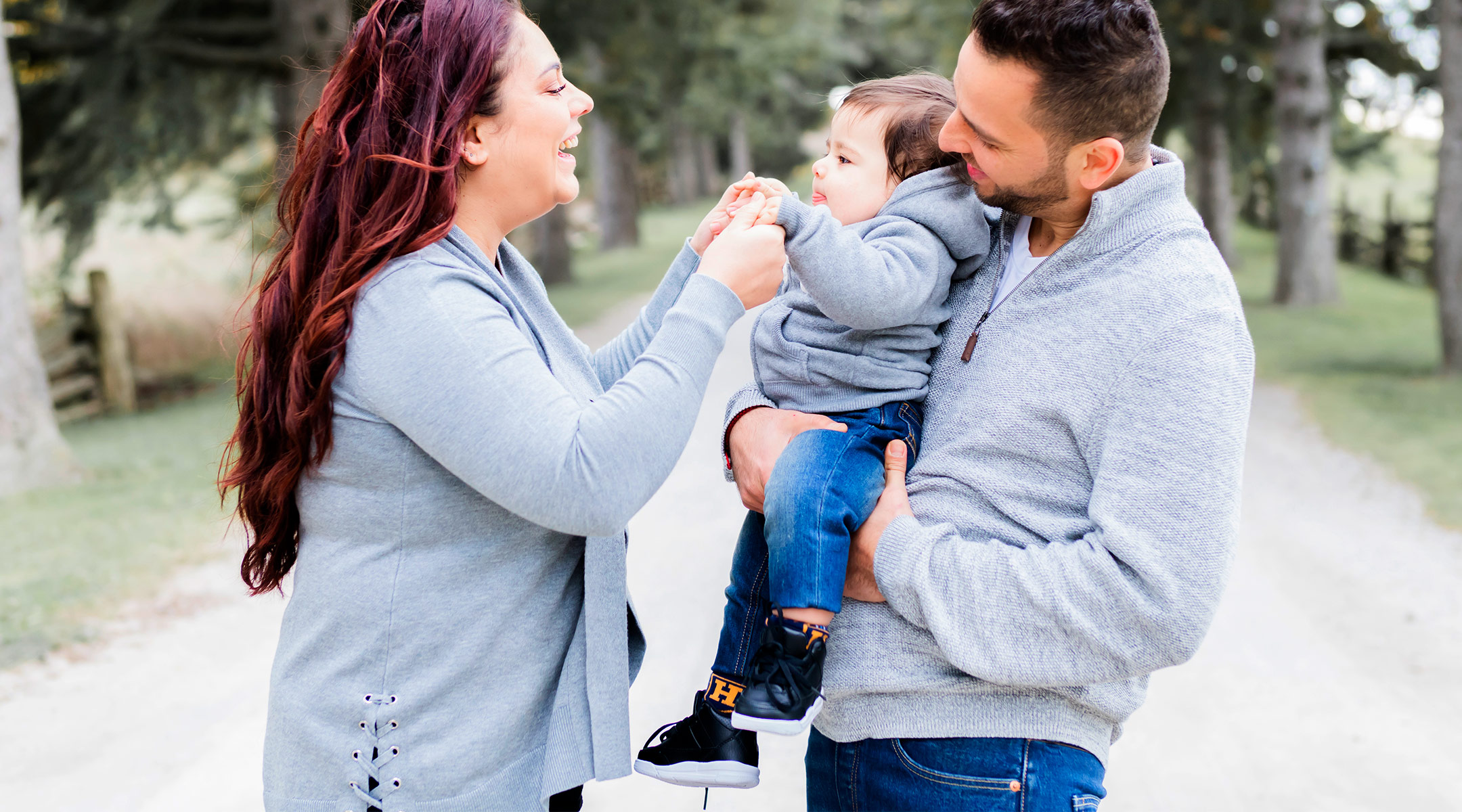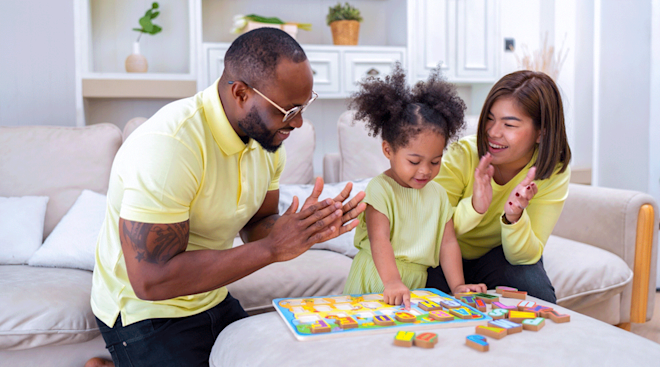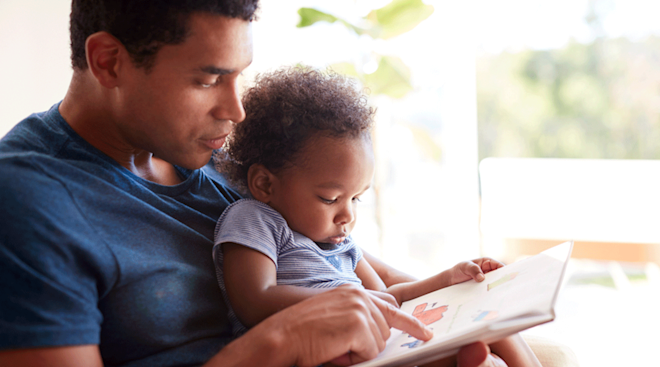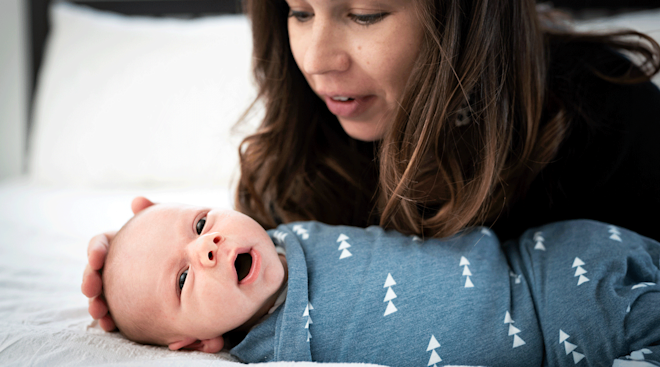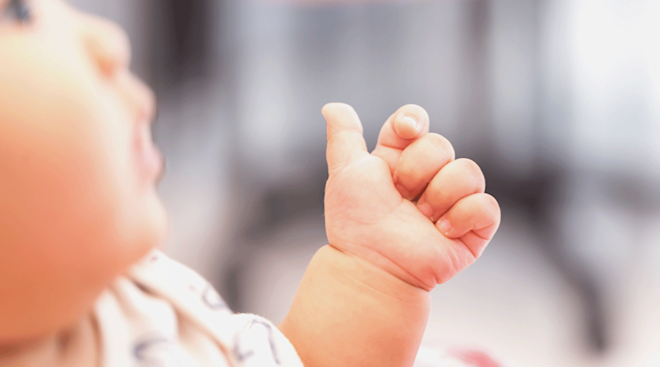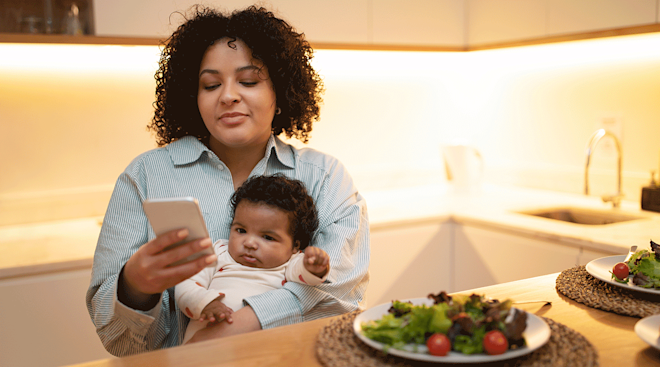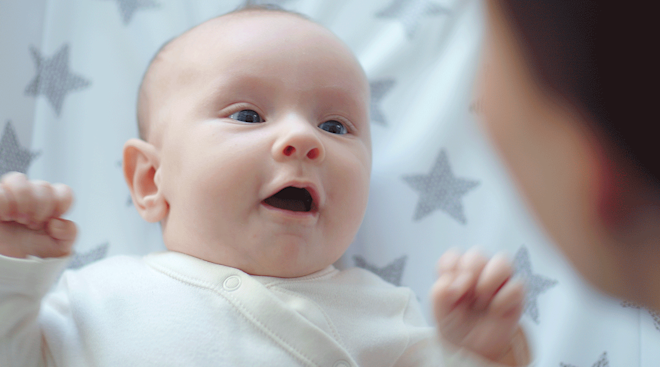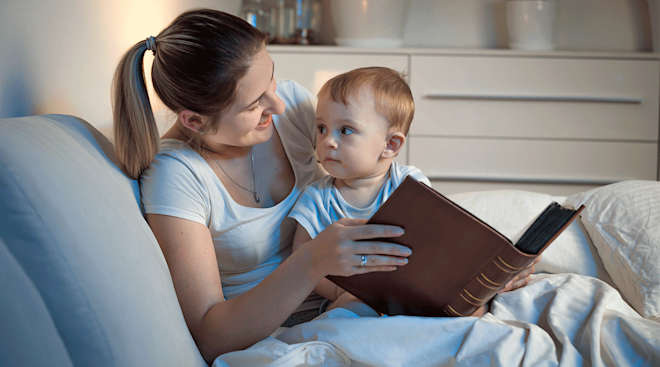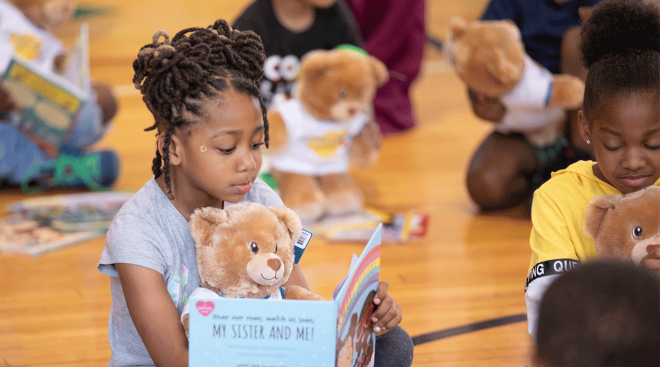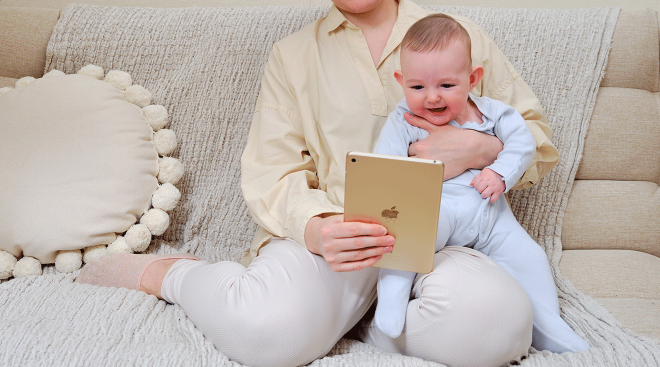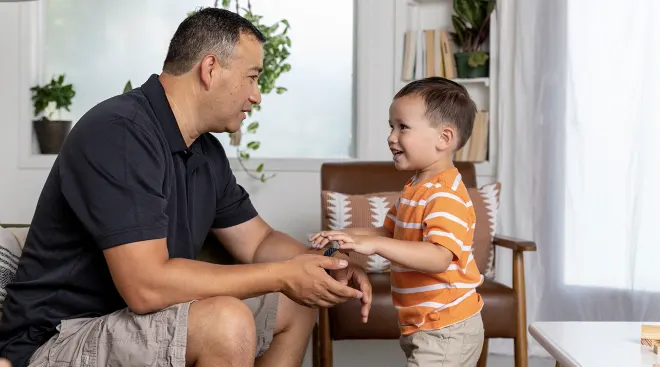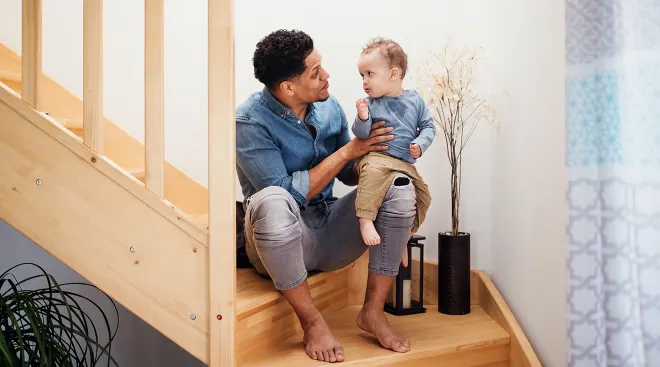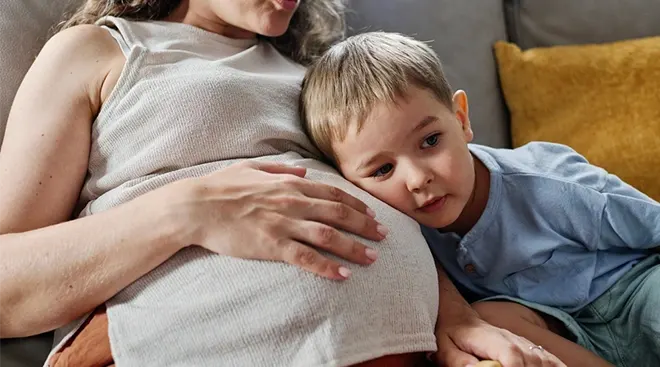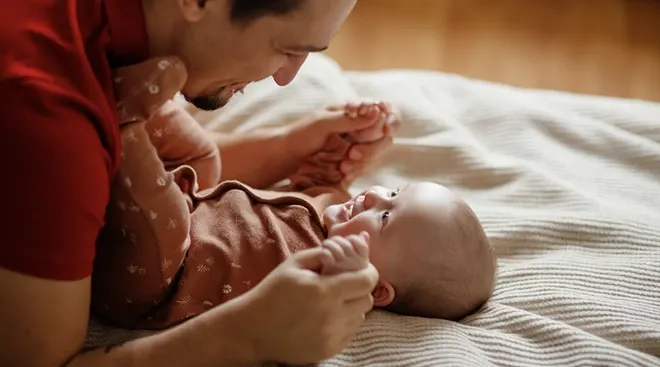Here’s the Right Way to Get Your Baby to Be More Verbal, According to Experts
When you become a parent, you start to speak another language: Parentese. The style of speech is associated with talking slowly and clearly with exaggerated vowels and intonation, and is believed to improve infant language. But mastering the true art of the language is not as easy as many think. And, according to a study, there can be a big difference in a child’s vocabualry for those who are “fluent” in parentese, and those who fall just a bit short.
In the study, researchers used audio recordings of participating families’ typical weekends who had babies who were 6 months old. They were asked to record two weekend days when babies were 6, 10 and 14 months old. Parents were also randomly assigned into two groups—a control and a coaching group.
While both groups were recorded, those in the coaching group participated in individual parent coaching sessions where they received language-interaction and “brain building” tips and discussed their recordings with the coach. Babies whose parents received coaching during the study were significantly more verbal by 14 months old.
“Most parents know that the amount of language their child hears is important. What we shared with them through coaching is that how they talk to their baby may matter even more,” said Naja Ferjan Ramírez, the lead author of the study. “We explained to them the research behind parentese, and made sure they were aware of the connection between their language input, and their speaking style in particular, and their baby’s language outcomes.”
According to the study, parents in the coached group increased the use of parentese by 15 percent when babies were between 6 and 14 months. Parents in the control group showed less growth in their strategies, averaging about 7 percent.
And babies of coached families babbled in about 43 percent of the analyzed recordings, while control babies babbled in 30 percent of the recordings. In addition, coaching group babies had a much larger vocabulary at 14 months than control babies.
The takeaway? Parentese is not what many people think of as “baby talk.” While most tend to lace together silly sounds and words, there’s a lot more involved in communicating with baby. Parentese is fully-grammatical speech using real words, elongated vowels and exaggerated tones. To put it simply, it sounds happy and conveys total engagement with your kid. When you speak the language correctly, it helps baby tune in to you and motivates him to talk back, even if he’s just making babbling noises.
Wondering when baby will start to speak up a little more? Find out what ages babies typically start talking and how you can encourage them along the way.
Please note: The Bump and the materials and information it contains are not intended to, and do not constitute, medical or other health advice or diagnosis and should not be used as such. You should always consult with a qualified physician or health professional about your specific circumstances.
Navigate forward to interact with the calendar and select a date. Press the question mark key to get the keyboard shortcuts for changing dates.
































